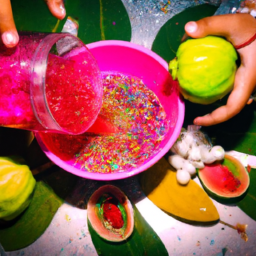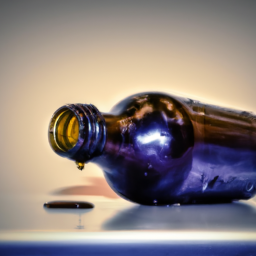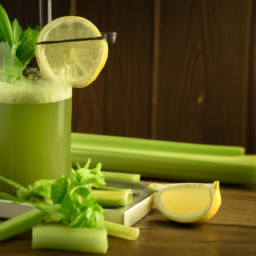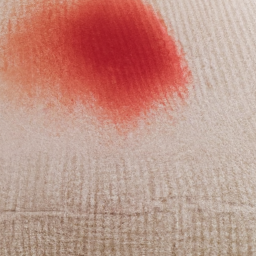I absolutely love the taste of freshly squeezed orange juice, and I often wonder how long it can last before going bad. Proper storage is key to preserving the freshness and flavor of this delicious drink.
In this article, I will delve into the shelf life of orange juice, signs of spoilage, safety precautions, and alternative storage methods. Orange juice is a popular breakfast beverage that is enjoyed by millions of people around the world.
However, leaving it out for too long can lead to spoilage, which can cause serious health issues. Knowing how long orange juice can stay out can help you enjoy this refreshing drink without any worries.
So, let’s dive in and explore the world of orange juice storage!
Key Takeaways
- Orange juice should be refrigerated at all times to prevent bacterial growth and spoilage.
- Exposure to air and light can cause loss of nutritional value and spoilage, and orange juice can only last a few hours at room temperature.
- Proper assessment of appearance, smell, and taste are crucial to determine quality and spoilage.
- Leaving orange juice out at room temperature allows bacteria growth and can lead to foodborne illness, so proper storage and safety precautions should be followed.
The Importance of Proper Storage
Properly storing orange juice is crucial to maintaining its freshness and preventing it from spoiling. This involves proper handling and storage tips that can help extend the shelf life of orange juice.
First and foremost, it’s important to keep the orange juice refrigerated at all times. Leaving it at room temperature for too long can cause bacteria to grow, leading to spoilage and a sour taste.
Additionally, it’s important to keep the orange juice in its original container or airtight container to prevent exposure to air and light. Exposure to light can cause the juice to break down and lose its nutritional value, while air exposure can lead to oxidation and spoilage.
By following these proper storage techniques, you can ensure that your orange juice stays fresh for a longer period of time. Understanding the shelf life of orange juice is also important, which we’ll discuss in the next section.
Understanding the Shelf Life of Orange Juice
You don’t want to risk drinking spoiled orange juice, so it’s important to know how quickly it can expire. Understanding the shelf life of orange juice can help you determine how long you can keep it out of the refrigerator before it spoils. The shelf life of orange juice depends on several factors, including its nutritional value and freshness indicators.
To help you understand the shelf life of orange juice, here’s a table that outlines how long it can last at different temperatures:
| Temperature | Shelf Life |
|---|---|
| Room temperature | 2-4 hours |
| Refrigerator | 5-7 days |
| Freezer | 8-12 months |
As you can see, orange juice can only last a few hours at room temperature. When kept in the refrigerator, it can last up to a week, but it’s important to check for freshness indicators like smell and taste before consuming it. If you want to extend the shelf life of your orange juice, you can freeze it for up to a year. Keep in mind that freezing can affect the nutritional value of orange juice, so it’s best to consume it fresh or refrigerated. Knowing these shelf life guidelines can help you avoid drinking spoiled orange juice.
Next, let’s discuss signs of spoilage that you should look out for when consuming orange juice.
Signs of Spoilage
When it comes to determining whether orange juice has gone bad or not, there are a few key signs to look out for. As someone who’s experienced the unpleasantness of drinking spoiled juice, I know firsthand the importance of being able to identify these indicators.
The appearance, smell, and taste are all crucial factors to consider when assessing the quality of your orange juice.
Appearance
Wow, this orange juice has been sitting out for hours and it looks like it’s turned into a thick, pulpy sludge. It’s no longer the bright, refreshing drink that I had earlier. This change in appearance is a clear sign that the orange juice has gone bad. As mentioned earlier, one of the ways to prevent oxidation and spoilage is to consume freshly squeezed juice. Freshly squeezed juice has higher nutrient content and is less likely to spoil quickly.
To give you a better idea of how appearance can indicate spoilage, take a look at the table below. It shows the changes in appearance of orange juice as it goes bad. As you can see, the longer the juice is left out, the more it changes in color, texture, and consistency. This emphasizes the importance of properly storing orange juice in the refrigerator.
Now, let’s talk about the next subtopic, which is ‘smell’. Even though appearance is a clear sign of spoilage, it’s not the only indicator. The smell of the juice can also tell us if it’s still safe to drink or not.
Smell
Did you know that the smell of orange juice can indicate how fresh it is? Here are some things to look out for:
- A strong, sweet smell – this indicates that the orange juice is still fresh and hasn’t yet started to spoil.
- A sour or fermented smell – this could be a sign that the orange juice has been left out for too long and has started to go bad.
- A chemical or metallic smell – this could indicate that the orange juice has been treated with preservatives or other additives during the preparation process.
- A musty or moldy smell – this is a clear indication that the orange juice has gone bad and should not be consumed.
- No smell at all – while this may not necessarily be a bad sign, it’s always best to check the expiration date on the packaging to ensure that the orange juice is still fresh.
Despite the importance of smell, it’s also important to note that many of the health benefits of orange juice come from its taste. In the next section, we’ll explore how the taste of orange juice can be affected by different preparation methods.
Taste
You think orange juice tastes the same no matter how it’s prepared, but the truth is that the method of preparation can greatly affect its taste. The flavor profile and sensory experience of orange juice can change depending on factors such as the type of oranges used, the level of acidity, and whether or not it has been pasteurized.
To better understand how different preparation methods can affect the taste of orange juice, consider the following table:
| Preparation Method | Flavor Profile | Sensory Experience |
|---|---|---|
| Freshly squeezed | Bright, tangy, sweet | Pulp, texture |
| Store-bought, pasteurized | Mellow, slightly acidic | Smooth, consistent |
| Store-bought, not pasteurized | Tart, earthy | Pulp, texture |
As you can see, the preparation method can greatly impact the flavor and sensory experience of orange juice. Whether you prefer the bright, tangy taste of freshly squeezed juice or the smooth consistency of store-bought, pasteurized juice, it’s important to note that these factors can also impact the safety of consuming the juice. Therefore, it’s important to take proper safety precautions when storing and consuming orange juice.
Safety Precautions
To ensure your safety, it’s important to follow proper storage guidelines for orange juice, such as refrigerating it promptly after opening and not leaving it out at room temperature for more than two hours. Here are some safety precautions to keep in mind when handling orange juice:
-
Freezing options: If you have leftover orange juice, freezing it is a great way to extend its shelf life. Simply pour the juice into an airtight container and leave some space at the top for expansion. When you’re ready to drink it again, thaw it in the refrigerator overnight and give it a good shake before serving.
-
Bacteria growth: Leaving orange juice out at room temperature allows bacteria to grow, which can cause foodborne illness. If you’ve left orange juice out for more than two hours, it’s best to throw it away to avoid any potential health risks.
-
Cleanliness: When handling orange juice, make sure your hands and any utensils you use are clean to prevent contamination. Additionally, be sure to clean the container and lid before storing the juice to avoid any lingering bacteria.
By following these safety precautions, you can ensure that your orange juice stays fresh and safe to drink. However, if you’re looking for alternative storage methods, there are other options available.
Alternative Storage Methods
I always make sure to follow safety precautions when handling food, especially when it comes to perishables like orange juice. However, even with the best precautions, sometimes we can’t consume all the juice before it goes bad. That’s why I’ve learned a few alternative storage methods to help make my orange juice last longer.
One of the easiest ways to extend the shelf life of orange juice is by freezing it. Simply pour the juice into an airtight container, leaving some room for expansion, and then pop it into the freezer. When you’re ready to drink it, thaw it in the fridge overnight and give it a good shake before serving. The juice won’t taste quite the same as fresh, but it’s still a great option for those times when you need to save some juice for later.
While freezing is a great option, there are other ways to make your orange juice last even longer. Let’s move on to the next section and explore some steps to help you preserve orange juice even better.
Making Orange Juice Last Longer
When it comes to making orange juice last longer, I always consider using preservatives and vacuum sealing. Preservatives help to inhibit the growth of harmful bacteria and extend the shelf life of the juice.
On the other hand, vacuum sealing removes air from the container, preventing oxidation and keeping the juice fresh for a longer period of time.
Preservatives
Preservatives help keep orange juice fresh for longer periods of time, but even with them, it’s best to refrigerate orange juice after opening to ensure its longevity. There are various types of preservatives that can be added to orange juice to extend its shelf life. Some commonly used ones include:
- Ascorbic acid (vitamin C)
- Citric acid
- Sodium benzoate
- Potassium sorbate
However, some people prefer to avoid consuming preservatives altogether and opt for natural alternatives. These can include adding lemon juice or apple cider vinegar to the orange juice, which can help prevent the growth of bacteria and fungi. Ultimately, the choice between using preservatives or natural alternatives comes down to personal preference and the desired shelf life of the orange juice.
When it comes to extending the shelf life of orange juice, vacuum sealing can be a useful step to take. By removing all the air from the container, the growth of bacteria and fungi can be slowed down, helping to keep the orange juice fresh for longer.
Vacuum Sealing
Vacuum sealing can significantly slow down the spoilage of stored citrus beverages like orange juice. This is because vacuum sealing removes the air from the container, which reduces the amount of oxygen available to bacteria and other microorganisms that cause spoilage. By removing the air, vacuum sealing also helps to preserve the flavor and freshness of the orange juice, making it last longer than if it was stored in a regular container.
In addition to vacuum sealing, there are other alternatives that can help prolong the shelf life of orange juice. For example, storing the juice in a cool, dark place can help slow down spoilage. Adding preservatives to the juice can also help prevent the growth of bacteria and other microorganisms.
However, when it comes to preserving the natural taste and freshness of orange juice, vacuum sealing remains one of the best options available.
Common misconceptions about the shelf life of orange juice can lead to unnecessary waste and expense. Let’s explore some of these misconceptions and learn how to properly store orange juice to make it last longer.
Common Misconceptions
Don’t believe the myth that orange juice can stay out all day without spoiling – it’s time to learn the truth. Here are some common misconceptions about orange juice storage that you need to be aware of:
- Orange juice can spoil quickly when left out at room temperature for more than two hours.
- The storage temperature of orange juice greatly affects its shelf life.
- The type of container material used to store orange juice can also impact its shelf life.
- Once opened, orange juice should be consumed within 7-10 days, even when refrigerated.
It’s important to keep these factors in mind to ensure the safety and quality of your orange juice.
Now, let’s take a look at how other types of fruit juice compare in terms of shelf life and storage requirements.
Other Types of Fruit Juice
If you’re a fan of apple juice, you’ll be happy to know that it can last up to 8 months when stored properly in the freezer. Unlike orange juice, which can spoil in just a few hours when left out of the fridge, apple juice can keep for a relatively long time. However, it’s important to note that the quality of the juice may deteriorate over time, so it’s best to consume it within a few months of freezing.
When it comes to the benefits of juicing, there are many different types of fruit juice you can enjoy. Some popular options include grapefruit, cranberry, and pomegranate juice, each with its own unique taste and nutritional benefits. Different juicing methods can also affect the quality and taste of the juice, so it’s important to experiment and find what works best for you. However, it’s important to remember that all fruit juice should be consumed in moderation, as they can contain high levels of sugar.
Moving on to the next section about using expired orange juice, it’s essential to be aware of the risks involved with consuming spoiled juice.
Using Expired Orange Juice
Although it may be tempting to use expired orange juice in recipes or drinks, it’s important to recognize the potential health risks associated with consuming spoiled juice. Consuming expired juice can lead to food poisoning, which may cause symptoms such as stomach cramps, diarrhea, and vomiting.
Additionally, consuming expired juice can lead to a weakened immune system, making it easier for you to contract other illnesses. Instead of using expired orange juice, there are ways to revive juice that has lost its flavor.
One way to do this is by adding a small amount of sugar or honey to the juice. This can enhance the flavor and make it more palatable. Another way to revive orange juice is by adding a small amount of lemon juice. This can help to balance out the flavor and improve the taste.
By using these tips, you can enhance the flavor of your orange juice and avoid the potential health risks associated with consuming spoiled juice.
Frequently Asked Questions
Can I still drink orange juice that has been left out for a few hours?
Coincidentally, I left my orange juice out for a few hours too. It’s safe to drink if it’s at room temperature and hasn’t been left out for more than two hours. After that, there are health risks.
How long can I keep orange juice in the refrigerator before it goes bad?
I typically keep orange juice in the refrigerator for 5-7 days before it goes bad. To ensure freshness, I always check for a sour smell or off taste. When it’s no longer drinkable, I use it in recipes using orange juice.
Can I freeze orange juice to make it last longer?
Firstly, let me say that freezing orange juice is a great way to make it last longer. Some tips and tricks for freezing include using freezer-safe containers and leaving room for expansion. When it comes to long term storage, the best way is to freeze it.
Is it safe to drink orange juice that has been opened for a week?
I wouldn’t recommend drinking orange juice that’s been opened for a week for health reasons. However, if you’re curious about the quality, look for signs of spoilage such as off odor, mold, or a sour taste. Other uses for expired juice include marinades or cleaning solutions.
What are some creative ways to use leftover orange juice?
I love using leftover orange juice to make delicious orange juice cocktails or as a marinade for chicken or fish. It adds a sweet and tangy flavor to any dish.
Conclusion
In conclusion, it’s crucial to understand how long orange juice can stay out and how to properly store it to prevent spoilage. By keeping it in the refrigerator and consuming it within a few days, you can ensure its freshness and safety for consumption.
Remember, ‘an ounce of prevention is worth a pound of cure.’ This adage perfectly sums up the importance of taking safety precautions and being aware of the signs of spoilage.
Additionally, don’t be afraid to get creative with alternative storage methods or making orange juice last longer. Just make sure to follow safe practices and check for any signs of spoilage before consuming.
And if you do find yourself with expired orange juice, don’t throw it away just yet. It can still be used in cooking or as a cleaning solution. With these tips and tricks, you can enjoy your orange juice for longer and waste less in the process.
Ilana has been a vegan for over 10 years. She originally made the switch for health reasons, but soon found herself becoming more and more passionate about the ethical and environmental implications of a vegan lifestyle. Ilana is the author of The Graceful Kitchen, a blog all about veganism. She loves to cook up delicious and nutritious vegan meals, and share her recipes with others who are interested in leading a cruelty-free life. Ilana is also a strong advocate for using whole foods as the foundation of a healthy diet, and believes that going vegan is one of the best ways to achieve this.










